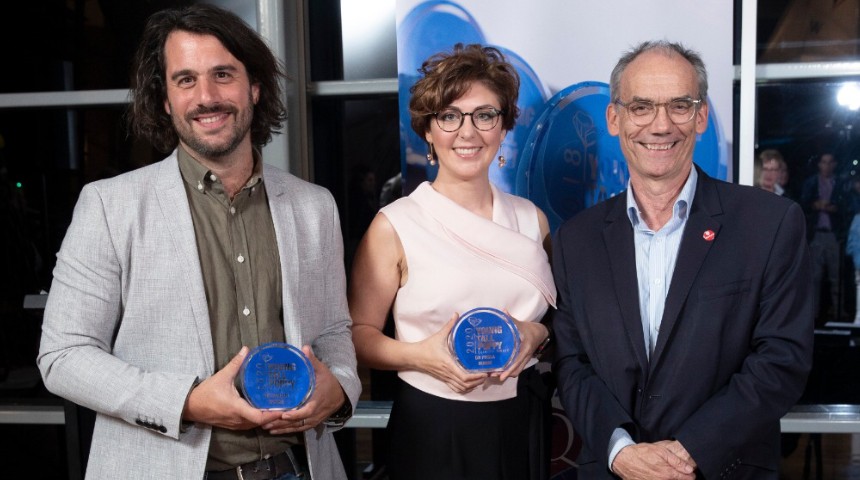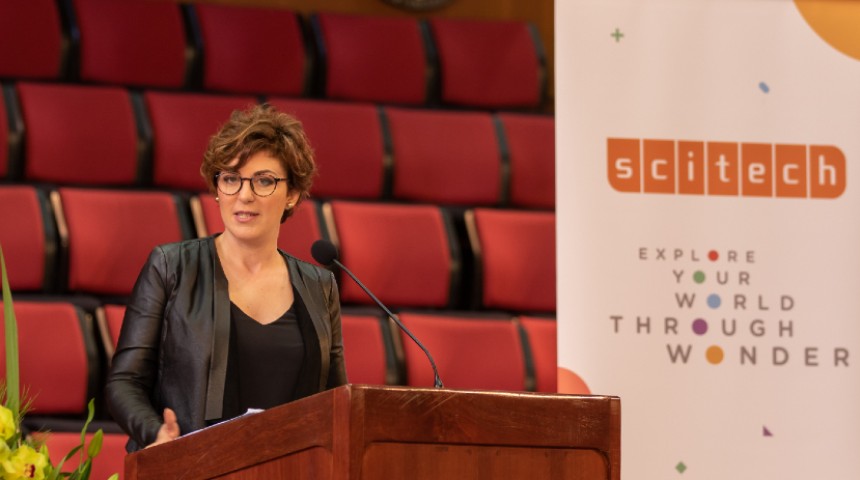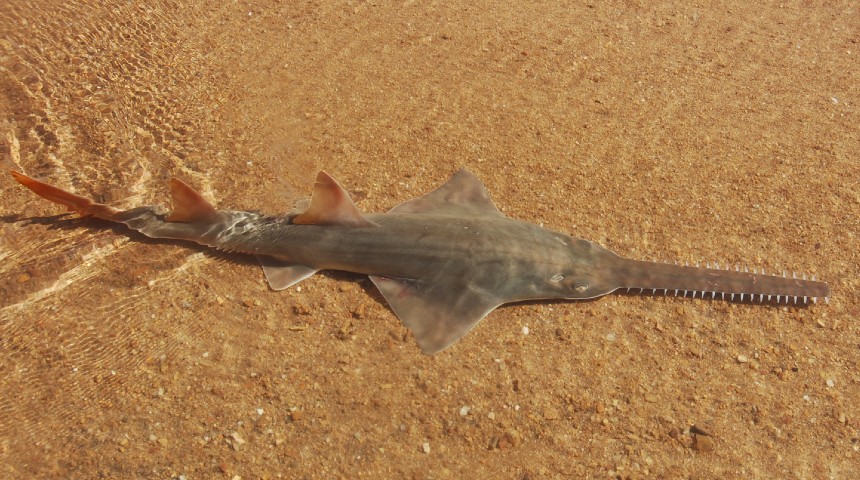
Two Murdoch University researchers have been honoured for their contributions to science at the 2020 Young Tall Poppy Awards.
Dr Paola Magni and Dr Adrian Gleiss are among a group of outstanding young scientists acknowledged as part of the 2020 Australian Institute of Policy and Science (AIPS) Young Tall Poppy Awards.
The annual awards recognise outstanding early career researchers who demonstrate excellence in both research and science communication.
Dr Magni is a forensic scientist specialising in the analysis of micro- and macro-organisms present at crime scenes or left on victims and suspects. By interrogating the interaction between the environment and deceased bodies, Dr Magni’s research is used to help further forensic investigations.
“My forensic research aims to expand the applicability of the insects in crimes that happen in terrestrial environments, and of barnacles and plankton in the ocean,” Dr Magni said.
Her research is driven by a mission to provide law enforcement with new tools to fight for justice. This work has led her to pursue innovative projects in virtual reality and using remote sensing in forensic science.

Image: Dr Paola Magni regularly speaks to students to encourage an appreciation of science in the broader community.
Living by the adage ‘science is nothing if not shared,’ Dr Magni believes communication is a key part of forensic science. At its most base level, effectively communicating her science to judges and juries in a court of law has an impact on the outcome of cases.
But it’s more than that. It’s her ability to make science inspiring and accessible to her students and the community that makes Dr Magni stand apart. She’s also a passionate advocate of women in science and in academia.
“I’ve travelled the length and breadth of Western Australia visiting schools and sharing both my science and my personal journey as a woman in STEMM,” Dr Magni said.
“In fact, I take every opportunity to champion diversity in science.”
Dr Adrian Gleiss, a Research Fellow with Murdoch University’s Harry Butler Institute, focuses on researching marine megafauna living deep in the ocean.
A physiological and behavioural ecologist, Dr Gleiss seeks to better understand how ecology and physiology drive the evolution of organisms. His research encompasses marine organisms ranging from sawfish to whale sharks.

Image: Dr Adrian Gleiss' research is helping to protect the critically endangered sawfish
“I am interested in a diverse range of unconventional model systems,” Dr Gleiss said.
“My work looks at the functional consequences of buoyancy in marine vertebrates, the implications of temperature for ectotherm performance and the ecology and evolution of locomotor capacity.”
In particular, his work to protect critically endangered sawfish, an iconic fish species of Australia’s north, involves outreach to locals in the Kimberley region, so local communities develop a sense of stewardship for the endangered species that inhabit their waterways.